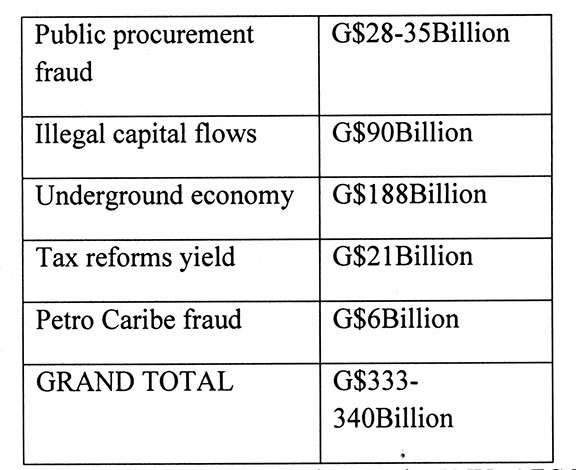As part of the series on managing Guyana’s public investment regime, today’s column proposes a mechanism whereby our newly elected government could, at this unique democratic opening, embark on seeking bread (investible resources) and justice for Guyanese whose national wealth has been rapaciously plundered in recent years. This task is pursued in two stages. First, I demonstrate that, based on the data presented thus far in the series, together with the APNU+ AFC’s Manifesto referenced democratic dividend, the potential economic as well as governance returns arising from a moderately successful stolen public assets recovery initiative are significant and seemingly efficient from a cost- benefit and cost-effectiveness standpoint. Secondly, the practical steps government should take in pursuing this are suggested. As will be indicated, these steps derive from Guyana’s 2008 accession to the United Nations Convention against Corruption (UNCAC). Before turning to these tasks, let me briefly address a hotly-debated and related issue of political morality.
Guyanese, broadly, support the view that the newly-elected government should neither misuse nor abuse state power in pursuit of witch-hunts against the rejected PPP/C political leadership. I share this view entirely. I am, however, equally convinced that this position would not condone a blanket or indeed other pardon for legally proven public corruption, ‘thieving,’ and plundering of the nation’s wealth over recent decades. More is at stake in this

